Chapter 4: Results
Chapter 4 is about results and how to communicate with successful and unsuccessful applicants.
For unsuccessful applicants, there’s an opportunity to help that person develop their application and understand better why an idea wasn’t funded. This must be done sensitively and constructively or they may give up on funding for good.
Here we go further with the prototype, imagining a federation of thousands of micro-granting organisations like Saxford Giving.
Recommendations
- Send full feedback to unsuccessful applicants automatically.
- Show members the group’s voting statistics to give legitimacy to the process.
- Highlight the wider network of grant organisations and their impact
- Show ideas from other areas to help inspire and promote sharing of good ideas.
- Make it easy to apply an idea from one area to another.
- Continuously recruit new members based on highly voted ideas. Automate it to ensure it always happens.
Prototype
It’s Monday morning, the day after voting closed. At midday, FacilitatorBot posts to social media announcing which idea will receive £500.
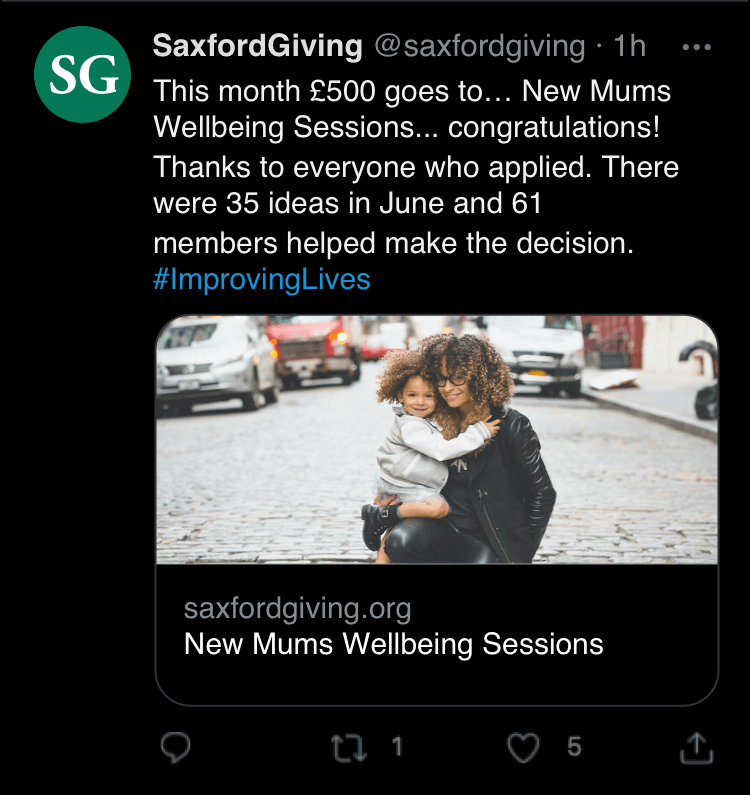
All across the country, organisations like Saxford Giving announce which idea got their grant this month. #ImprovingLives starts trending.
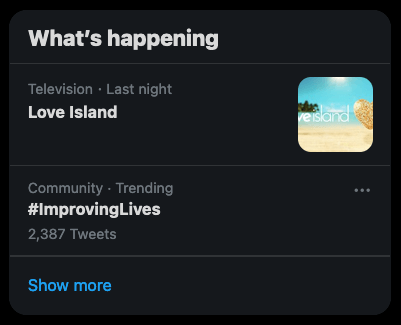
At the same time, Tina gets an email from FacilitatorBot announcing the idea that got funded.
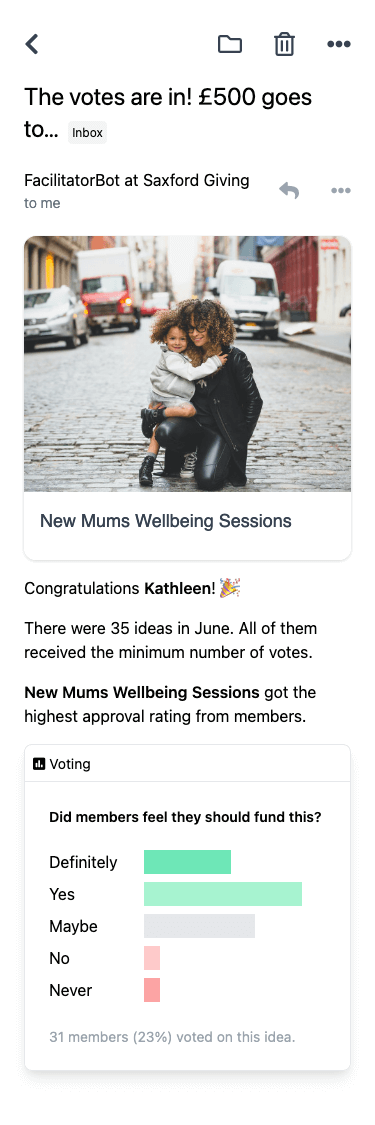
Tina is interested to see ideas that were funded in other places.

She clicks on Food for the Future and looks at the application.
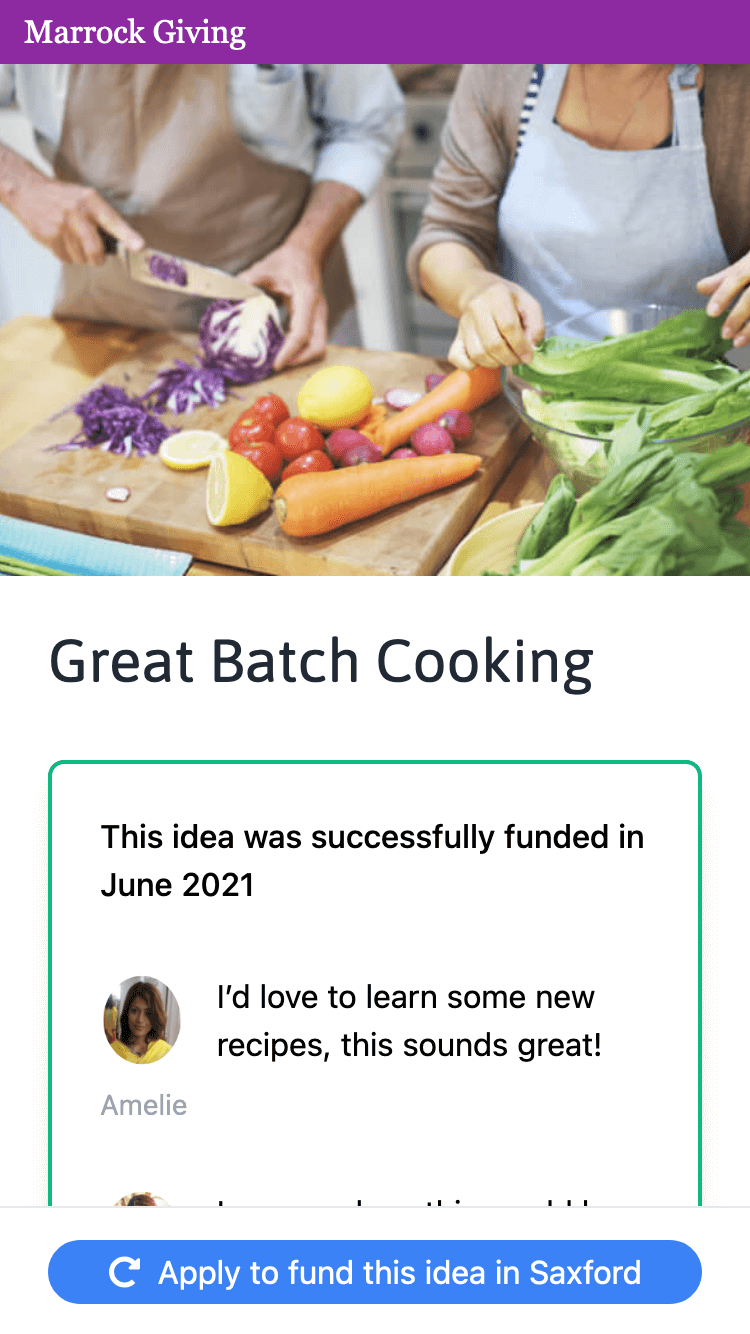
She thinks the idea would work in Saxford and clicks the “Apply in Saxford” button.
She’s immediately taken to a pre-filled application form for Saxford Giving.
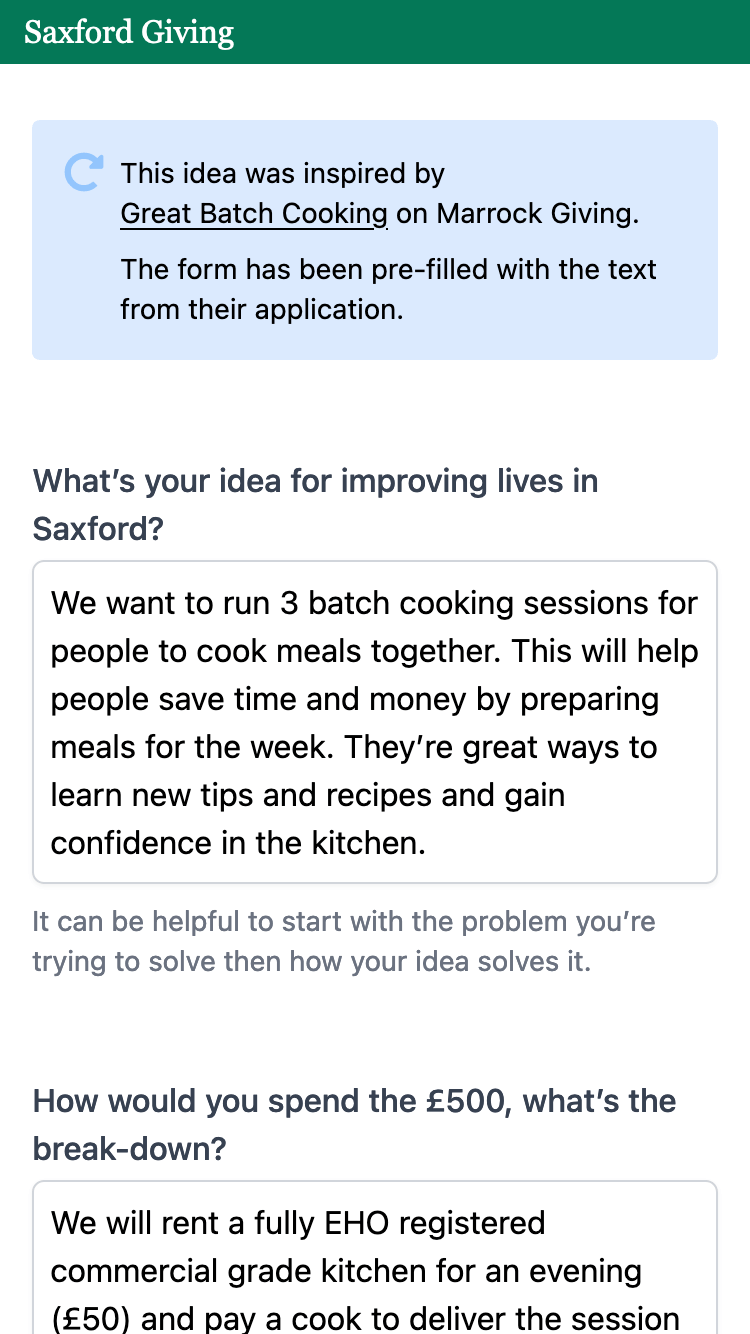
Aamna receives an email from FacilitatorBot about her application, Museums for Refugees. She reads the feedback and understands that the issue with the directors was the main problem. She feels confident that she could apply again in the future.

She sees the invitation at the bottom to become a member of Saxford Giving.
